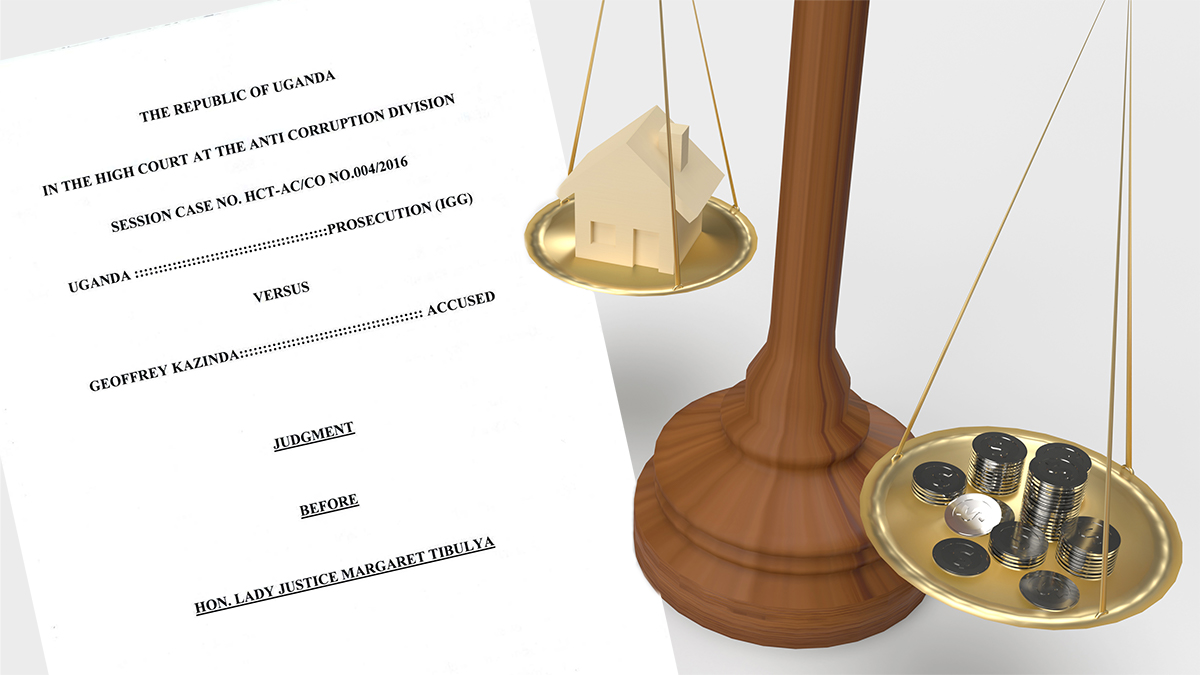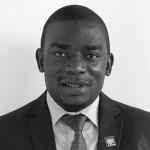Uganda achieves landmark victory in USD 1.25 million illicit enrichment case

On 28 October 2020, Uganda registered a landmark judgment in the case of Uganda v Geoffrey Kazinda. Although there have been a couple of other previously prosecuted illicit enrichment cases, the Kazinda case is the most significant because of the vast sum of money involved: a total of UGX 4,630,195,258 (over USD 1,252,600).
Kazinda, a former Principal Accountant in the Office of the Prime Minister, was convicted on three counts of illicit enrichment contrary to section 31 of the Anti-Corruption Act, 2009. He has previously been prosecuted for other corruption-related offences. The case, which was investigated and prosecuted by the Inspectorate of Government, paves the way for development of the offence of illicit enrichment in Uganda.
Incompatible standard of living
In the first count, the court found that between 2009 and 2012, the accused maintained a standard of living that was not commensurate with his known sources of income. The evidence showed that between 2010 and 2012, the accused had rented a suite at Sheraton Hotel, Kampala for over six months. The accused spent UGX 210,364,011 (USD 56,910) on this expense. The accused had stated in his Asset Declaration Forms that, for the period in issue, he had no other sources of income other than his salary and allowances, which totalled UGX 83,754,655 (USD 22,658).
To disassociate this expense from himself, the accused obtained a credit facility at the hotel in the name of an accomplice. The accomplice denied having occupied the suite in his evidence. Also, expert evidence on handwriting showed that the accused had signed the invoices of the bills incurred. He also made part payments in cheques in his own name. Oral evidence from hotel staff also proved that it was the accused who occupied the suite at the time.
A mansion and plots of land in Kampala
In the second count, the court found that between 2010 and 2012, the accused was in control and possession of three plots of land in Bukoto, Kampala worth a total value of UGX 3,657,747,500 (USD 989,540), which was disproportionate to his known sources of income. On a part of this land sat the accused’s spectacular mansion.
Interestingly, the accused had tried to disassociate himself from these properties by transferring them as a gift to the registered trustees of a local Christian monks’ group. Three witnesses from the monks’ group testified that their society did not, in fact, own these properties. Their acquisition was not reflected in their Annual General Meeting reports of the years in question. Neither were they reflected in their inventory of properties.
So, though the accused had purported to have transferred these properties by way of a gift to the monks, evidence showed that he remained in possession and control of these properties. He also retained the land titles. The fact that the accused did not declare these properties in his Asset Declarations led to an inference that he had obtained them illicitly.
Luxury cars
In the third count, the court found that between 2010 and 2012, the accused was in control and possession of four motor vehicles worth a total value of UGX 769,473,835 (208,145 USD), which was disproportionate to his known sources of income. One of these vehicles was a Mercedes Benz worth a whopping UGX 544,594,287 (USD 147,315).
Strangely, the accused registered this luxurious vehicle in the name of a Christian monk who was his family friend. The other three vehicles were also registered in the names of accomplices. However, the court established that the accused owned and was in control of the said vehicles.
Asset Declaration – untrue, incomplete and incorrect
The court noted that the requirement for public servants to make Asset Declarations under the Leadership Code Act is not a mere formality but a legal requirement. Those who make the declarations undertake that the information they give is true, complete and correct. Any property or source of income that is not included in the asset declaration is therefore viewed with suspicion, and its omission must be sufficiently explained by the accused.
The court rejected the accused’s defence that he could have afforded this lifestyle since he had worked for 18 years in various positions. The court noted that even if his income were aggregated for all those years and even if he had not spent anything in all that time, the assets he was holding would still be hugely disproportionate to his known sources of income.
The accused was sentenced to suffer a total of 15 years’ imprisonment. The court also issued confiscation orders against the three plots of land and the four motor vehicles described above. The accused was also disqualified from public office for a period of ten years. Prosecutors at the Inspectorate of Government will now work hard to ensure that the confiscation orders are executed and that the properties are realised.
Paving the way for illicit enrichment prosecutions in Uganda
At the time of writing, it was not clear whether the accused had exercised his right to appeal. Nevertheless, this case has set an excellent foundation for jurisprudence to be developed on the offence of illicit enrichment in Uganda. It is hoped that similar charges will be brought against other public servants in Uganda who have illicitly acquired enormous wealth, thereby deterring others from attempting the same.
For this to happen, it is essential to build strong capacity to investigate and prosecute cases of illicit enrichment. Through its International Centre for Asset Recovery, the Basel Institute on Governance has conducted high-impact Financial Investigations and Asset Recovery training in Uganda and many other African countries. Specifically covered in these training programmes is the “Source and Application Analysis of Funds” method of calculating the illicit wealth of an individual, elements of which appear to have been considered during this prosecution together with additional supporting evidence.
The Basel Institute also offers a practical introduction to the Source and Application method as a free eLearning module on its LEARN virtual learning website.
Further reading
- Full judgment of the Uganda vs. Geoffrey Kazinda case (HCT-AC/CO NO. 004/2016)
- See also Tom Walugembe’s description of Uganda’s first successful money laundering prosecution and its implications for the country’s fight against corruption and money laundering.
- Andrew Dornbierer's quick guide to illicit enrichment gives a brief overview into this legal mechanism for non-specialists. It's available in English, French, Spanish and Portuguese on the Basel Institute's LEARN platform.



